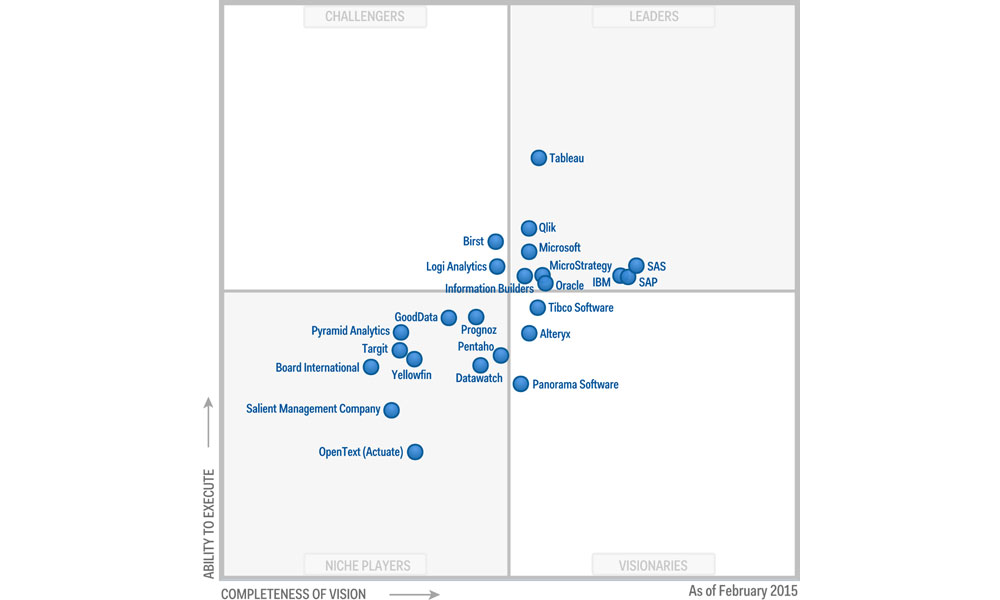 By Craig Larmer, Lead Consultant at Stellar
By Craig Larmer, Lead Consultant at Stellar
Earlier this year I attended the Gartner BI, Analytics & Information Management Summit in Sydney – a very hectic few days covering a huge range of business intelligence topics.
Gartner is one of the world’s leading IT research companies and one of the Summit highlights was the release of their 2015 Magic Quadrant for Business Intelligence and Analytics Platforms.
Each year Gartner produces a magic quadrant for different segments of the Information Management industry. It’s not without its problems but it is a useful reference point as the information is gathered from vendors and clients. On the surface, at least, it represents independent opinions across the whole market.
This year the magic quadrant had two of the newer BI vendors (Qlik and Tableau) leading the Ability to Execute axis for a second consecutive year, placing them firmly at the head of the Leaders pack.
Strangely, after acquiring Jaspersoft in April 2014 to bolster its BI and Analytics capability, Tibco slips from the Leaders quadrant for the first time in 3 years – presumably dragged down by Jaspersoft’s lower Ability to Execute rating. In our experience, Tibco’s Spotfire data discovery and visualisation analytic capabilities exceed many of those rated ahead of it in Completeness of Vision so it is surprising not to see Tibco further up this axis especially given their Jaspersoft acquisition.
The so-called mega-vendors – Microsoft, SAP, IBM and Oracle – remain in the Leaders quadrant but their trend of sliding down the Ability to Execute axis in comparison to their “pure-play” competitors continues – possibly reflecting the more complex environments and scenarios in which their products are used. It’s hard to see any of this group being relegated from the Leaders quadrant entirely, but I think the message from Gartner is clear: the mega-vendors are by-and-large playing catch-up to the newer entrants and more work is needed to consolidate and simplify their BI and Analytics product offerings.
Although the Magic Quadrants are always interesting to review, in the end, it’s all just technology. Choosing a BI toolset is definitely an important decision and there are great benefits to be gained from a consistent and consolidated platform. However, it generally doesn’t matter which platform.
Technology is one of Stellar’s 7 Essentials of BI Success framework, but these days it is probably the least challenging obstacle in delivering great BI capability.
There are generally much better gains to be made by investing in any of the six other essentials that cover the People, Process and Data involved in delivering BI.
Technology is an enabler, and a required piece in the puzzle. But without the other pieces, you’ll never see the bigger picture.




